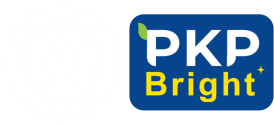Module Handbook of Community service Programme (KKN)
A Module Handbook or collection of module descriptions that is also available for students to consult should contain the following information about the individual modules:
Â
| Module Name & Code module | Community Service Program |
| Module Level, if applicable | Undergraduate program |
| Code, if applicable | 07023222001 |
| Subtitle, if applicable | – |
| Course, if applicable | A, B |
| Semester(s) in which the module is taught | 7-8/Fourth Year |
|
Module Description |
Community Service Program is a form of community service activity by students with a cross-scientific and sectoral approach at certain times and regions in Indonesia. The implementation of KKN activities usually lasts between one to two months and takes place at the village level |
| Person responsible for the module | Community Service Program Advisory Lecturer Team |
| Lecturer(s) | Community Service Program Advisory Lecturer Team |
| Language | Bahasa Indonesia |
| Relation to curriculum | Compulsory Course |
| Type of teaching, contact hours | Independent Tasks/Independent Activities/Independent Learning |
| Workload | 6 weeks in the field |
| Credit Points | 2 (2 practical) (3 ECTS) |
| Requirements according to the examination regulations | Have passed 100 SKS |
| Recommended prerequisites | – |
|
Module objectives/intended learning outcomes |
CLO
PLO PLO 4: Have the ability to synergise stakeholders and various interests in decision-making to make agricultural extension and community empowerment more effective. Â PLO 5: Have the ability to plan, implement, and evaluate agricultural development programmes and community empowerment professionally in the context of developing community participation in a sustainable manner. Â PLO 6: Master and implementing the theory of communication and information technology in planning and developing innovation efforts. |
 | ||
| Content |
|
 | ||
| Study and examination requirements and forms of examination |
Assessment method:
Grade A- (80 – 84) Grade B+ (75 – 79) Grade B (70 – 74) Grade C+ (65 – 69) Grade C (60 – 64) Grade D (55 – 59) Grade E (< 55) |
 | ||
| Media employed | Laptop, LCD, Books, Journal | Â | ||
| Reading list | The guidebook implementation of KKN Universitas Sebelas Maret | Â | ||


